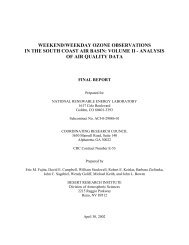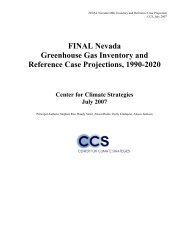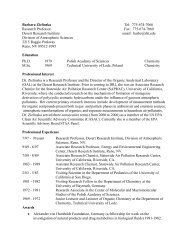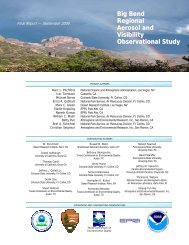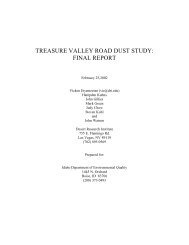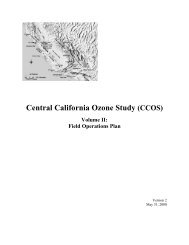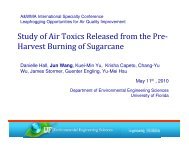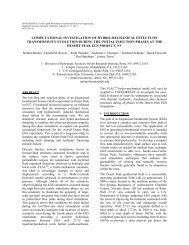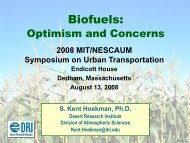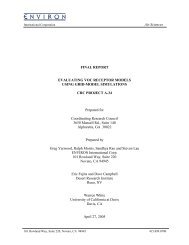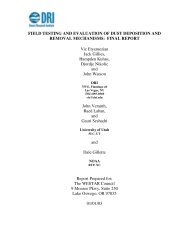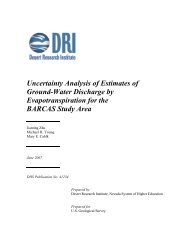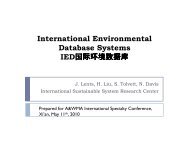Assessment of Conversion Technologies for Bioalcohol Fuel ...
Assessment of Conversion Technologies for Bioalcohol Fuel ...
Assessment of Conversion Technologies for Bioalcohol Fuel ...
Create successful ePaper yourself
Turn your PDF publications into a flip-book with our unique Google optimized e-Paper software.
1. Maximize the contributions <strong>of</strong> bioenergy toward achieving the state’s petroleum<br />
reduction, climate change, renewable energy, and environmental goals.<br />
2. Establish Cali<strong>for</strong>nia as a market leader in technology innovation, sustainable<br />
biomass development, and market development <strong>for</strong> biobased products.<br />
3. Coordinate research, development, demonstration, and commercialization<br />
ef<strong>for</strong>ts across federal and state agencies.<br />
4. Align existing regulatory requirements to encourage production and use <strong>of</strong><br />
Cali<strong>for</strong>nia’s biomass resources.<br />
5. Facilitate market entry <strong>for</strong> new applications <strong>of</strong> bioenergy including electricity,<br />
biogas, and bi<strong>of</strong>uels.<br />
On September 27, 2006, Governor Schwarzenegger signed AB 32, the Global<br />
Warming Solutions Act. The Act calls <strong>for</strong> the reduction <strong>of</strong> Cali<strong>for</strong>nia’s greenhouse gas<br />
emissions by 11% by 2010, by 25% by 2020 and 80% below 1990 levels by 2050.<br />
The en<strong>for</strong>cement <strong>of</strong> AB 32 will be phased in starting in 2012.<br />
Under the Act, the state board is authorized to adopt market-based compliance<br />
mechanisms, including cap-and-trade, and allow <strong>for</strong> one-year extension <strong>of</strong> the targets<br />
under extraordinary circumstances. CARB is directed to develop appropriate<br />
regulations and establish a mandatory reporting system to track and monitor<br />
greenhouse gas emissions.<br />
Furthermore, the Act requires CARB to distribute costs and benefits equitably, ensure<br />
that there are no direct, indirect or cumulative increases in air pollution, protect those<br />
who have voluntarily reduced their emissions prior to the passage <strong>of</strong> this act, and allow<br />
<strong>for</strong> coordination with other agencies to reduce emissions.<br />
54



